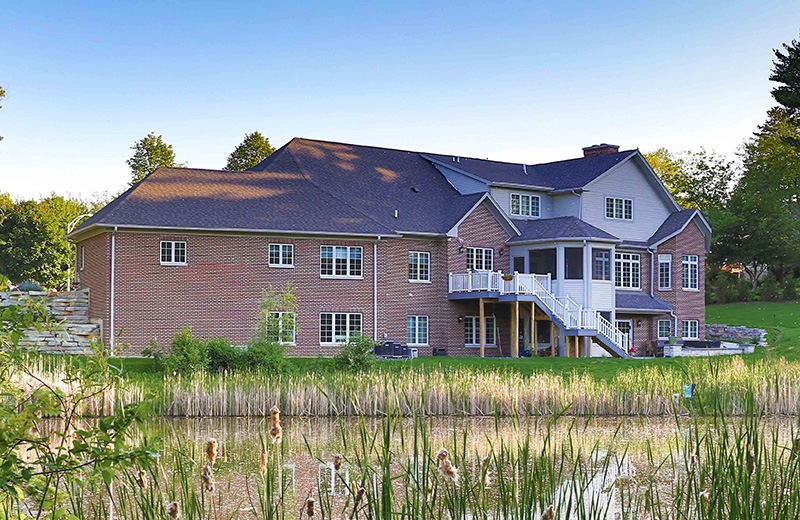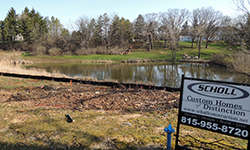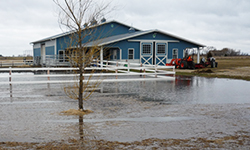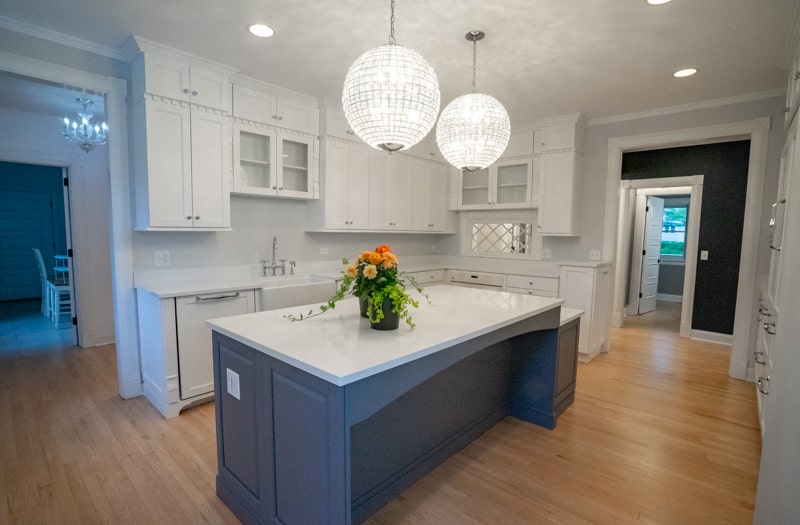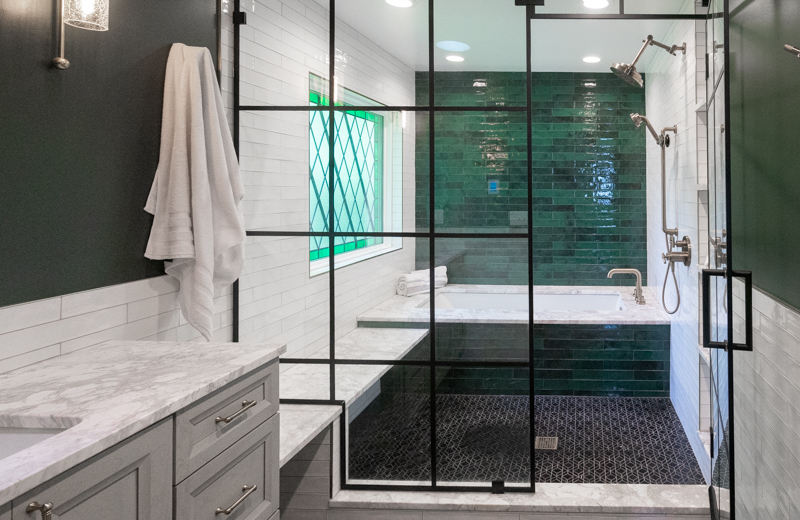With all the heavy rain we have had this summer, the topic of flood plains, and flooding in general, has been top of mind for almost everyone. As a custom home builder, we get asked about building in all kinds of conditions, including those that are less than ideal. Here are the top three questions Scholl Construction customers ask us about building, or considering building, in or near a wet area.
I am considering buying a vacant lot to build on . . . what should I look for?
Often you can’t see the factors that impact building because they are below ground. If you are considering purchasing any vacant land, the first thing you should do is contact your builder to test the soil before you make the decision to buy. The builder, working with a soil engineer, will be able to determine if the soil is able to support a home. If soil conditions are questionable, we can provide you with an estimate of what it would take to build in those specific conditions. At Scholl Construction, we work closely with our clients in the lot search process so they understand the costs and the solutions BEFORE they buy.
I bought a lot without having it tested and have found out its swap land . . . now what?
Ideally, you would go through the soil testing process before you buy. But if that isn’t the case, you should get the soil tested as soon as possible. If the soil is not ideal for supporting a home, we can work with you and an engineer to find a solution. For example, you may need a special foundation or septic system designed specifically for the conditions that exist in a wet area. Scholl Construction can help you navigate this process and ensure your project follows all current building codes.
I live in an older home that seems to be flooding more often . . . is there something I can do?
Since 2008, Northern Illinois has seen an increase in flooding so this is a question we get asked on a regular basis. If you live in an older home chances are the building codes have changed. For example, if you are building in an area that is prone to flooding today, basements and garages need to be built with an exit in mind so when flood waters come in they have a path for getting out. Because each situation is unique your first step would be to call us for an evaluation and consultation.
Looking to build your dream project? Check out our video on what questions you should ask your contractor. Or download our FREE guide to getting started with your building project.
